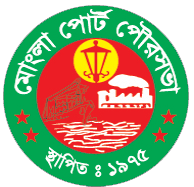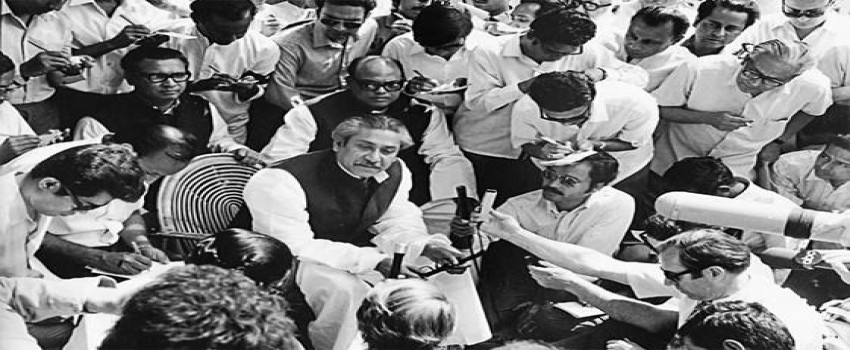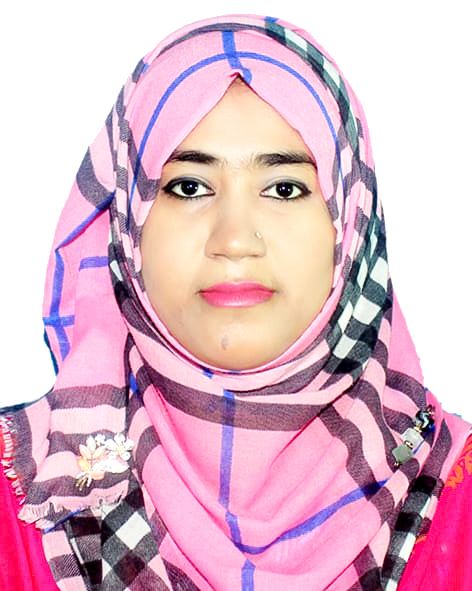1920
Sheikh Mujibur Rahman was born in the village of Tungipara under the then Gopalganj Subdivision (now District) of the then Faridpur District on March 17, 1920. His father Sheikh Lutfar Rahman and his mother Sheikh Sayera Khatun had four daughters and two sons. Sheikh Mujibur Rahman was their third child. His parents used to adoringly call him "Khoka".
1927
At the age of seven in 1927, Sheikh Mujib began his schooling at Gimadanga Primary School. At nine, he was admitted to class three at Gopalgonj Public School. Subsequently, he was admitted to Gopalgonj Missionary School. Before becoming active in student movements and politics, Sheikh Mujibur Rahman had an affinity toward sports like any other teenager. He possessed a special love for football. A talented football player, Sheikh Mujibur Rahman spent his adolescent years playing in competitive tournaments, where he received awards for his outstanding performances.
1932/1933
Sheikh Mujibur Rahman married Sheikh Fazilatunnesa (Renu). Together they had two daughters, Sheikh Hasina and Sheikh Rehana, and three sons, Sheikh Kamal, Sheikh Jamal and Sheikh Russel.
1942
Sheikh Mujibur Rahman passed Matriculation examination from Gopalganj Missionary School. The same year he got himself admitted into the Islamia College (currently Maulana Azad College), Kolkata. From there he completed his graduation in the year 1947.
1943
In 1943, Sheikh Mujibur Rahman was elected councillor of All India Muslim League from Bengal. He continued to serve admirably in this position till the partition of India in 1947.
1946
Sheikh Mujibur Rahman was elected uncontested as the General Secretary of Islamia College Students Union. During the communal riots of Kolkata known as ‘The Great Calcutta Killing’ on August 16, 1946, he engaged himself in maintaining peace and communal harmony, saving lives of many a member of both Hindu and Muslim communities even at the risk of his own life.
1947
Bangabandhu Sheikh Mujibur Rahman joined Huseyn Shaheed Suhrawardy’s move for a United Independent Bengal as a third free state along with India and Pakistan. However, the move was aborted and subsequently became the foundations of the Father of the Nation’s vision for an independent Bangladesh. Unlike many others, he did not rush into East Bengal (Pakistan) immediately after Partition, rather stayed over in Calcutta for a few weeks, joining Mahatma Gandhi’s Peace Mission along with his political mentor Huseyn Shaheed Suhrawardy.
1952
On January 26, the then Prime Minister of Pakistan Khawaja Nazimuddin declared at a public meeting in the Paltan Maidan that Urdu would be the only state language of Pakistan. While in captivity, Sheikh Mujibur Rahman stayed in constant touch with those waging the movement to realize Bangla as one of the state languages. He issued key directives to make the movement a success even from the confines of his prison. On February 16, Sheikh Mujibur Rahman started a hunger strike unto death that lasted for 11 days and was released on February 27. On February 21, the agitated students came out on strike in order to press hard their demand to make Bangla as one of the state languages of Pakistan in defiance of the curfew enforced by the authorities. Salam, Barkat, Rafiq, Jabbar, Shafiur and many others were martyred when the police fired on a rally. In a statement released from the jail, Sheikh Mujibur Rahman expressed deep sorrow for those who lost their lives and continued protesting against the unjust police firing through hunger strike. The same year he visited China to attend World Peace Conference, where he delivered a resounding speech in Bangla, taking the cause of the mother language movement to a global audience.
1971
https://mujib100.gov.bd/assets/images/timeline/XTJHwhnJjLSDQfvNaTfRViXcUyaNVx.png
Following general Yahya khan’s postponement of the National Assembly session on March 1, 1971, only two days before the session was due to take place, every section of the Bengalis instantaneously came out onto the streets in massive demonstrations. The Bengalis’ aspirations for freedom reached an indomitable height. From March 1 onward Bangabandhu Sheikh Mujibur Rahman was virtually running East Pakistan as its de-facto head of government. On March 7, in his historic speech before the millions of people at the Racecourse Maidan (Suhrawardy Udyan), Bangabandhu Sheikh Mujibur Rahman called his fellow countrymen to take all out preparations for the war of liberation and independence of Bangladesh. In this grave situation Pakistan’s President General Yahya Khan came to Dhaka and held a series of meetings with Sheikh Mujibur Rahman between March 16 and March 24, none of which brought about any resolution. On the midnight of March 25, the Pakistan army launched its heinous campaign of genocide against the unarmed Bengalis. Sheikh Mujibur Rahman proclaimed the Independence of Bangladesh in the early hours of March 26. Right after the proclamation, he was arrested and taken to a Pakistani prison. On April 10, 1971, the first government of the People’s Republic of Bangladesh was formed, and Bangabandhu Sheikh Mujibur Rahman was elected as President by the constituent assembly. Syed Nazrul Islam was elected Vice President and acting President in the absence of Bangabandhu Sheikh Mujibur Rahman and Tajuddin Ahmed as Prime Minister. The government took oath of office on April 17 at a famous mango garden (Amrakanan) of Baidyanathtala in Meherpur, which is now known as Mujibnagar. After nine months of bloody war Bangladesh was liberated with the surrender of Pakistan occupation army on December 16, 1971. During August & September of 1971, the Pakistan Junta held a secret trial of Bangabandhu and sentenced him to death. The freedom loving people of the world was enraged and demanded the security of the President of Bangladesh. On December 27, the Bangladesh government sought Mujib's immediate and unconditional release.







